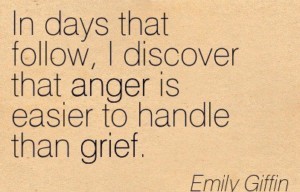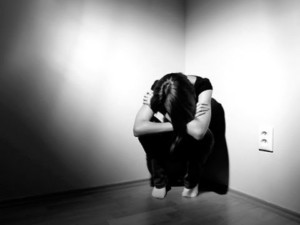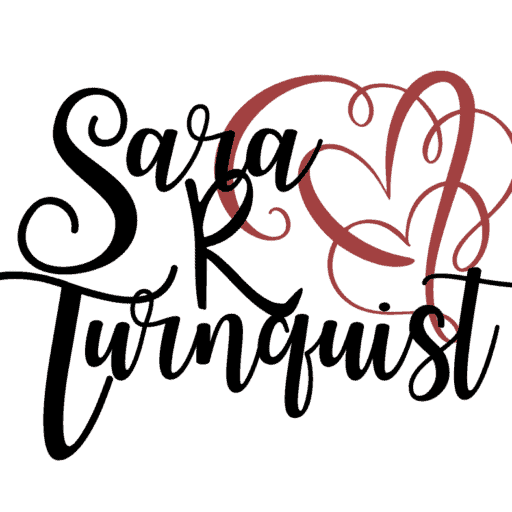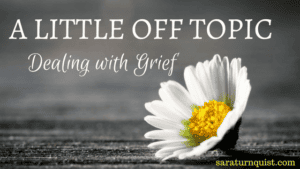Hey, everyone…sorry I haven’t blogged in a little while. I’ve found myself in a hard place. My mother passed away unexpectedly on April 9th. She’s not the first person in my life that I have lost. Not even the first close relationship to have lost to death. But she was my mom. And that makes it different.
And so I have been going through a myriad of emotions. Memories have flooded to the surface…some that make me laugh, some that make me ache. Then a couple of days ago, I realized that the especially difficult place I found myself in was uncomfortably familiar. Depression.
But I am getting ahead of myself. Most of us are aware that there are 5 stages of the grieving process. But I didn’t really delve into it until this week. And here’s what I found at PsychCentral and Grief.com. I will attempt to summarize what I learned.
Grief and its Stages
 There are 5 accepted stages of grief. However everyone grieves differently. The stages are not necessarily a roadmap, they are more like guidelines. People in mourning will not necessarily go through the stages linearly or even hit all the stages. They may feel one stage, then another, and jump back to a previous stage because the stages are a response to our feelings. We also spend unpredictable amounts of time in each stage and experience the stages with varying intensities. Some things are the same for most people though:
There are 5 accepted stages of grief. However everyone grieves differently. The stages are not necessarily a roadmap, they are more like guidelines. People in mourning will not necessarily go through the stages linearly or even hit all the stages. They may feel one stage, then another, and jump back to a previous stage because the stages are a response to our feelings. We also spend unpredictable amounts of time in each stage and experience the stages with varying intensities. Some things are the same for most people though:
- you will move through at least some of the stages toward ACCEPTANCE
- you will typically think of your own mortality
Another thing to note is that everyone grieves differently. I’ve seen this in my own family. I process things outwardly. I always have. While I have a close family member that deals with these sorts of things in a more private way. It is important not to judge how others grieve. It is personal.
DENIAL (& ISOLATION)
 The first reaction to great loss is to deny the reality of the situation. We go numb and just try to survive. The world is meaningless and overwhelming. Life just doesn’t make sense anymore. Denial actually helps pace all the emotions of grief. This is a defense and it’s totally normal. It carries you through the first wave of pain, only letting in what we can handle. but at some point, we ask ourselves questions and opens us up to the healing process. Those denied feelings come to the surface.
The first reaction to great loss is to deny the reality of the situation. We go numb and just try to survive. The world is meaningless and overwhelming. Life just doesn’t make sense anymore. Denial actually helps pace all the emotions of grief. This is a defense and it’s totally normal. It carries you through the first wave of pain, only letting in what we can handle. but at some point, we ask ourselves questions and opens us up to the healing process. Those denied feelings come to the surface.
I did experience this stage in a very vocal way. I remember the moment my brother told me that my mom had died. I screamed that it wasn’t true. Like I was trying to convince myself that it wasn’t so. As if I could say it loud enough and enough times to make it not true. Inside, my heart was breaking, but everything in me was working to deny the reality of it. I wasn’t ready to deal with the pain.
ANGER
 The initial effects of the denial are wearing off…but we are not ready. We want to deflect from our vulnerable heart, so anger rises to the surface. Anger actually gives us strength. It gives us some structure to the emptiness of the loss. You may even feel guilt over expressing the anger, which can make you angrier. And while it may seem counterproductive, it is important to feel that anger. As you allow yourself to experience this emotion, it will dissipate and the more you will heal, and the feelings underneath can bubble up and you can get to them (in time).
The initial effects of the denial are wearing off…but we are not ready. We want to deflect from our vulnerable heart, so anger rises to the surface. Anger actually gives us strength. It gives us some structure to the emptiness of the loss. You may even feel guilt over expressing the anger, which can make you angrier. And while it may seem counterproductive, it is important to feel that anger. As you allow yourself to experience this emotion, it will dissipate and the more you will heal, and the feelings underneath can bubble up and you can get to them (in time).
This is a stage I have experienced, moved on from, and come back to. And it has been spent largely on my husband in the form of my irritability shot in his direction. And he has taken it in stride. He is amazing. He is so loving and understand that I am going through something huge and trying to navigate my way through tricky waters (so to speak).
BARGAINING
 This is a normal reaction to feeling helpless and vulnerable. You want to regain control. You are plagued by the “if only’s” and “what if’s”. You may make a deal with God in the midst of this self doubt. This is a weaker line of defense protecting yourself from the pain. Those “if only’s” lead you to find fault in yourself which only leads to guilt. And guilt is like bargaining’s best friend. They run in a pack. This stage finds you living in the past.
This is a normal reaction to feeling helpless and vulnerable. You want to regain control. You are plagued by the “if only’s” and “what if’s”. You may make a deal with God in the midst of this self doubt. This is a weaker line of defense protecting yourself from the pain. Those “if only’s” lead you to find fault in yourself which only leads to guilt. And guilt is like bargaining’s best friend. They run in a pack. This stage finds you living in the past.
There is no time prescribed to each stage. Some stages may take days/months. Some may take minutes. That is true of this stage for me. There have been moments of bargaining, of “if only’s” for me. “If only” I had asked this question. “If only” I had thought about that. “If only” I had been more attentive in this way. None of it gets me anywhere. But it is a part of the grieving process and dealing with my emotions.
DEPRESSION
 Unlike, bargaining, this stage focuses on the present. It may be a reaction to practical things. Like the costs associated with burial or the guilt of not spending time with friends. Typically this can be eased by clarity and reassurances. Another, more subtle depression may take hold, however. This is a kind of preparation for letting go. This stage is marked by sadness and regret. Empty feelings pervade you, as if it will last forever. Your grief may be as if it has deepened. Experiencing depression as a reaction to loss is NOT a sign of mental illness. Other things you may note: withdrawal from life, intense sadness, wondering if there’s any point to continue without your loved one.
Unlike, bargaining, this stage focuses on the present. It may be a reaction to practical things. Like the costs associated with burial or the guilt of not spending time with friends. Typically this can be eased by clarity and reassurances. Another, more subtle depression may take hold, however. This is a kind of preparation for letting go. This stage is marked by sadness and regret. Empty feelings pervade you, as if it will last forever. Your grief may be as if it has deepened. Experiencing depression as a reaction to loss is NOT a sign of mental illness. Other things you may note: withdrawal from life, intense sadness, wondering if there’s any point to continue without your loved one.
This is where I am now. Having been through postpartum depression three times, this is uncomfortably familiar territory. I struggle to get out of bed, want to return to bed. The world feels “unsafe” emotionally. I have to force myself to get out. But I have an amazing support system and, through counseling and therapy, I have many tools in my toolbox that are helping my ease my passage through this stage. I have essential oils that help. I know to plan something everyday with a friend or loved one to give me something to look forward to. I have my binder of counseling exercises and significant verses. It is not a cure-all, but it helps.
ACCEPTANCE
 The final stage. Not everyone reaches this stage. Perhaps the death is sudden or we may never see beyond our anger and denial. This stage should not be confused with a feeling of happiness or a sense that we feel okay with what happened. You probably won’t ever feel that what happened is okay. This is simply about accepting the reality that they are gone physically. This stage is marked by withdrawal and calm (and it is different from the withdrawal associated with DEPRESSION). You are now able to accept a new normal and know that the old normal is gone. We must now invest in our other relationships. We begin to live again, but not until we have given grief its time.
The final stage. Not everyone reaches this stage. Perhaps the death is sudden or we may never see beyond our anger and denial. This stage should not be confused with a feeling of happiness or a sense that we feel okay with what happened. You probably won’t ever feel that what happened is okay. This is simply about accepting the reality that they are gone physically. This stage is marked by withdrawal and calm (and it is different from the withdrawal associated with DEPRESSION). You are now able to accept a new normal and know that the old normal is gone. We must now invest in our other relationships. We begin to live again, but not until we have given grief its time.
How someone copes with death is very personal. And no one can smooth out the process for you. But others (your support network) can be there to comfort and be with you through the process. The best thing you can do for yourself is to allow yourself to feel the grief. Resisting your own emotions only prolongs the process.


